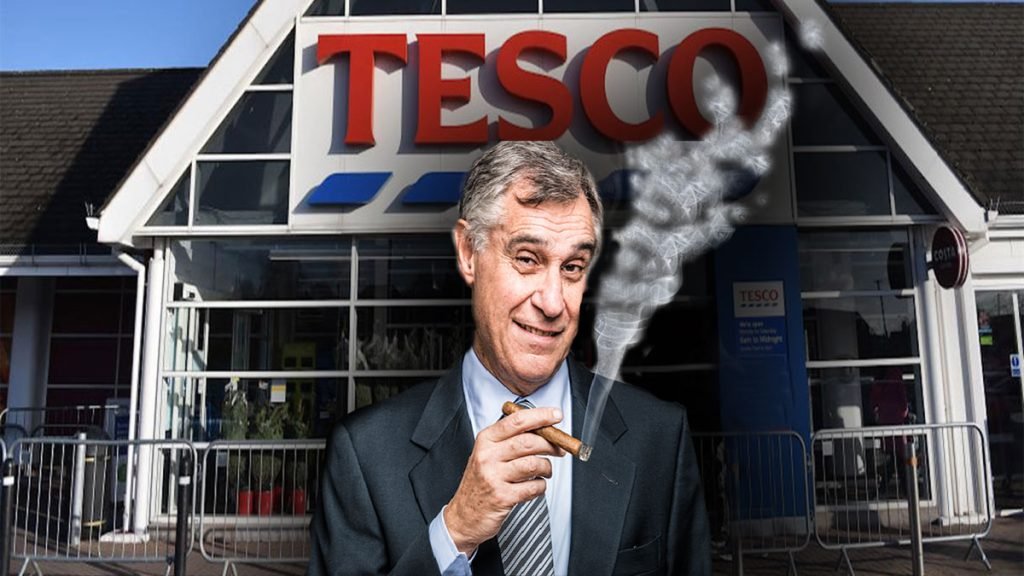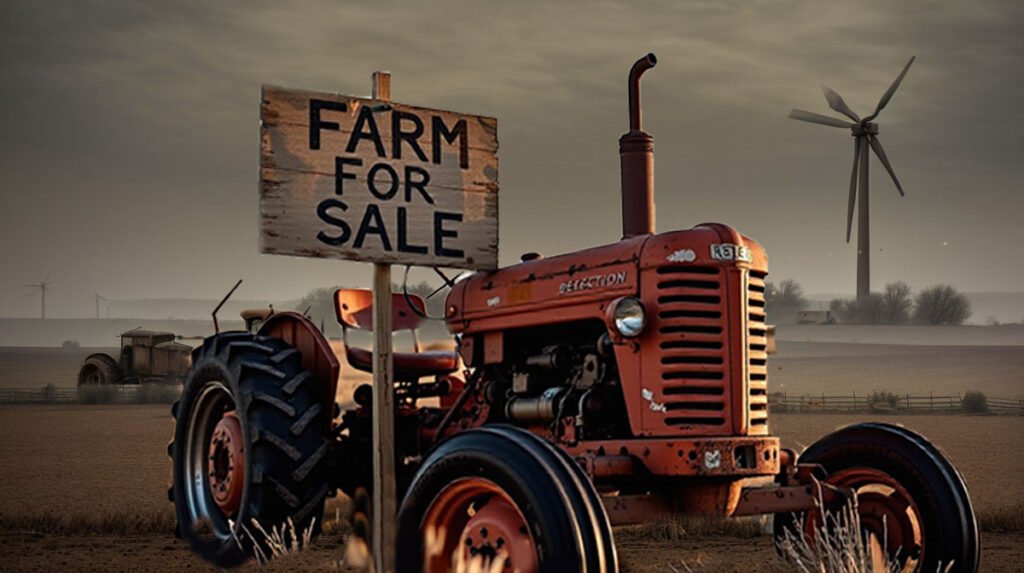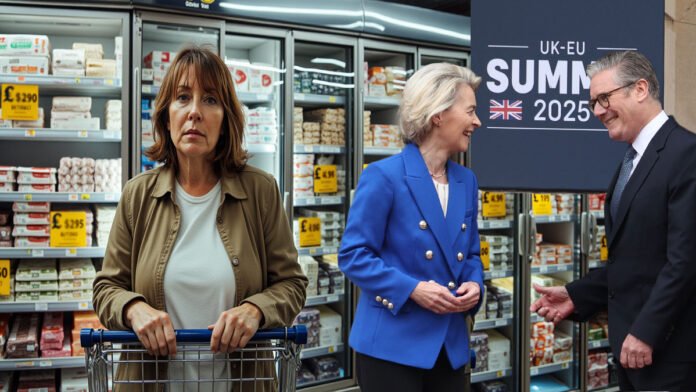Westminster Fantasy vs. Kitchen Table Reality: Starmer’s Broken EU Vow
Remember Keir Starmer’s solemn promise that his EU reset deal would deliver cheaper food and energy for British families? The Prime Minister stood before cameras proclaiming a “win-win” outcome as he sealed his high-stakes agreement with concessions on youth visas and fishing rights, assuring struggling households that relief was finally coming.
Well, here in the real world, far from Westminster’s fantasy economics, working families are still waiting for that promised win to wash ashore at Dover. Instead of cheaper shopping baskets, they’re facing the harsh reality of Starmer’s broken promises printed on every till receipt across the country.
Food inflation has now hit an 18-month high of 4.2%, up from 4% in July, according to the British Retail Consortium. The highest level since February 2024 represents not progress but regression, not relief but increased hardship for families already crushed by the cost-of-living crisis that Labour promised to solve.
Starmer’s “Win-Win” EU Reset Delivers Double Whammy for Working Families
The numbers tell the story that Starmer’s spin doctors desperately want to bury. Chocolate, butter, and eggs, basic household staples, have all become more expensive under Labour’s watch. Fresh food inflation has accelerated to 4.1% from 3.2% in July, driven by soaring dairy prices that make everyday nutrition increasingly unaffordable for working families.
While ambient food inflation slowed slightly to 4.2% year-on-year, this marginal improvement pales against the broader acceleration of food costs. Overall shop price inflation climbed to 0.9% in August, ensuring that every shopping trip becomes an exercise in belt-tightening for households already stretched to breaking point.
This isn’t some global phenomenon beyond government control, it’s the direct result of Labour’s own policy choices. The Bank of England explicitly linked accelerating food prices to Rachel Reeves’ increase in employer National Insurance contributions in April. The Chancellor’s decision to squeeze businesses inevitably translates into higher consumer prices, creating a textbook example of how establishment economics transfers costs from corporate balance sheets to family kitchen tables.
The Double Whammy Exposed
The landmark deal clinched between the UK and EU to remove checks on food exports will add £9bn to the UK economy and lower food prices, No 10 has said.
Keir Starmer said the deal, billed as a “historic” turning of the page, delivered the “reset” he had promised after winning the general election last July.
Starmer promised a win-win but delivered a double whammy. First, his EU reset deal, heralded as the solution to post-Brexit trade friction, has produced precisely zero relief for struggling households. The grand diplomatic breakthrough that was supposed to slash food and energy costs has vanished like morning mist, leaving families to face continued price rises with empty government promises.
Second, Labour’s own fiscal policies have actively worsened the situation. Reeves’ National Insurance raid on employers doesn’t exist in an economic vacuum, businesses pass increased costs directly to consumers through higher prices. The same government that promised to tackle the cost-of-living crisis has implemented policies that exacerbate it, proving once again that establishment politicians understand neither economics nor the lives of ordinary people.
Higher grocery prices come as households also brace for steeper energy bills, with the industry regulator for Great Britain due to announce a new price cap on Wednesday.
Ofgem’s quarterly price cap is expected to rise by 1% in October, according to forecasts from Cornwall Insight, a leading energy consultancy.
It has predicted Ofgem will increase the cap to £1,737 a year for a dual-fuel household, from the current level of £1,720. The rise would come into effect in October and remain in place until the end of the year.
Charities have warned such a rise could mean millions of households will struggle to pay their energy bills.
Simon Francis of the End Fuel Poverty Coalition said the average household was paying 67% more for their energy compared with the winter of 2020-21.
The charity estimates that 12.1 million UK households are struggling with the cost of their energy bills and says they cannot shoulder any more price increases.
“We are now approaching the fifth winter of the energy bills crisis and the time for tinkering with the price cap is over,” he said.
The Pattern of Broken Promises
This represents more than policy failure, it exemplifies the systematic dishonesty that defines establishment politics. Starmer campaigned on transforming Britain’s relationship with Europe to deliver tangible benefits for working families. He explicitly linked diplomatic success to domestic relief, creating expectations that his government now frantically attempts to memory-hole.
The EU reset was supposed to be Labour’s foreign policy triumph, demonstrating how grown-up diplomacy could succeed where Tory bombast had failed. Instead, it joins a growing list of Starmer promises that evaporate upon contact with reality: the radical transformation that became technocratic incrementalism, the worker-focused government that serves corporate interests, the change agenda that perpetuates managed decline.
Working Families Pay the Price

Every percentage point of food inflation represents real hardship for real families making impossible choices between necessities. When butter becomes a luxury item, when eggs require budgetary calculations, when chocolate disappears from children’s treats, the human cost of political failure becomes undeniable.
The 4.2% inflation rate means that a £100 weekly food shop now costs £104.20, an additional £4.20 that must come from somewhere in already strained household budgets. Multiply that across 52 weeks and working families face an extra £218.40 annually for the same basic nutrition, money that could have covered school uniforms, heating bills, or modest family pleasures now sacrificed to grocery inflation.
The Establishment’s Economic Illiteracy
The combination of failed diplomatic promises and counterproductive fiscal policies reveals the economic illiteracy that permeates Westminster thinking. Politicians like Starmer believe they can announce policy outcomes through press conferences rather than implementing policies that produce desired results.
The EU reset was pure theatre, dramatic summitry designed to create impressions of progress while changing nothing fundamental about trade relationships that drive food costs. Meanwhile, Labour’s domestic policies actively undermine their stated objectives, creating policy contradictions that working families pay for through higher prices and reduced living standards.
The Coming Reckoning

Food inflation at 18-month highs under a Labour government that promised cheaper food represents political failure so comprehensive that even friendly media struggle to provide cover. When your signature diplomatic achievement produces opposite results to those promised, when your fiscal policies contradict your cost-of-living rhetoric, when working families face higher prices despite voting for change, credibility becomes the casualty.
Starmer’s response will likely involve more promises about future improvements, more blame-shifting to external factors, more claims that complex policies require time to produce results. But families choosing between heating and eating don’t have time for excuses. They need policies that work, not politicians who talk.
The contrast between promise and delivery, between Westminster spin and kitchen table reality, between elite comfort and working-class struggle, has never been starker. Starmer’s “win-win” has become working families’ lose-lose, and every grocery receipt provides evidence of establishment politics’ bankruptcy.
The EU reset promised transformation but delivered stagnation. The fiscal policies promised relief but created additional burdens. The Labour government promised change but perpetuates the same failed economics that benefits corporate interests while crushing ordinary families.
Starmer’s food inflation crisis proves what critics have long warned: establishment politicians can spin failure as progress, but no press release will make profiteers sell food at prices people can actually afford. Working families know the difference, even if their leaders refuse to admit it.
Starmer can call it what he likes, but smiles and slogans won’t make dinner cheaper…
But here’s a prediction for you. When peace finally comes to Ukraine, watch as our supermarket shelves are flooded with Ukrainian produce, neatly packaged, proudly stamped with BlackRock’s little logo. After all, Ukraine holds the richest farmland in Europe, and war has always been the handmaiden of profit.
The cost? British farmers quietly priced out, their fields sacrificed on the altar of “progress.” And as the last family farms vanish, we’ll be told it is our patriotic duty to accept the transformation, to trade food security for imports, and to watch our countryside disappear beneath endless wind turbines and solar farms.
This is how empires end: not with the sound of ploughs in the soil, but with the hollow language of “renewables” and “resilience,” while sovereignty is sold off by the acre. This is globalisation in practice.
Support Independent Journalism Today
Our unwavering dedication is to provide you with unbiased news, diverse perspectives, and insightful opinions. We're on a mission to ensure that those in positions of power are held accountable for their actions, but we can't do it alone. Labour Heartlands is primarily funded by me, Paul Knaggs, and by the generous contributions of readers like you. Your donations keep us going and help us uphold the principles of independent journalism. Join us in our quest for truth, transparency, and accountability – donate today and be a part of our mission!
Like everyone else, we're facing challenges, and we need your help to stay online and continue providing crucial journalism. Every contribution, no matter how small, goes a long way in helping us thrive. By becoming one of our donors, you become a vital part of our mission to uncover the truth and uphold the values of democracy.
While we maintain our independence from political affiliations, we stand united against corruption, injustice, and the erosion of free speech, truth, and democracy. We believe in the power of accurate information in a democracy, and we consider facts non-negotiable.
Your support, no matter the amount, can make a significant impact. Together, we can make a difference and continue our journey toward a more informed and just society.
Thank you for supporting Labour Heartlands









